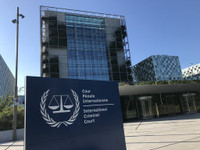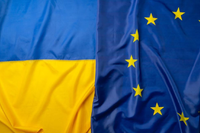
To return to Europe’s news of the week, there’s been some talks of Bulgaria and Romania finally joining the Schengen area...
Indeed : on the 18th of October, the European Parliament voted in favour of granting these two countries access to the Schengen area.
So, does this mean we’ll be able to travel freely in and out of these two countries?
Well, not quite: on the 20th of October, two days after the European Parliament’s vote, the Dutch parliament adopted a resolution stating that they would oppose granting Bulgaria and Romania access to the border free area. Their rationale? Concerns over non-respect of the rule of law, corruption and organised crime. However, with The Netherlands being the only member state opposing these countries’ accession to Schengen, Romanian Prime Minister Nicolae Ciucă has affirmed his belief that this is only a momentary stumble in negotiations
On the topic of geopolitics, Josep Borrell, High Representative of the European Union for Foreign Affairs recently delivered a speech at the College of Europe concerning the war in Ukraine...
Yes – he established the current state of affairs concerning the war in Ukraine and called for further European unity in establishing sanctions. Most importantly, he referred to the current trends towards geopolitical multipolarity and annexation as a return to the law of the “jungle” which Europe has a responsibility to prevent.
How did people react to his speech?
The speech actually elicited some controversy: his reference to the “jungle” that Europeans had to tame was deemed by many to be an expression of a sort of Eurocentric philosophy, with some even
arguing that it carried neo-colonial implications. This is of particular interest when we consider Putin’s speech on the 30th of September in which Putin made concerted efforts to portray Russia as a bastion against European colonialism. Increasingly, these diplomatic events, rather than solely being destined for the geopolitical enemy, are of importance in obtaining the support of countries in the Global South which have already become the next battleground for influence. As such, Borrell has since clarified his statements, restating the European Union’s desire to deepen ties with countries in the Global South.
And finally, concerning environmental policy, there’s been some ongoing debates about the Energy Charter Treaty across the European Union...
Indeed - on the 21st of October, Emmanuel Macron announced that France would leave the Energy Charter Treaty, following in the footsteps of the Netherlands, Spain, Poland and Italy.
Could you explain to us if this is good news for the green transition? Are we going in the right direction?
Absolutely – the Energy Charter Treaty which was signed in 1994 contained one important clause which allowed companies to legally demand damages from the state if they deemed that environmental policy had a negative impact on their revenues. France’s High Council for Climate has argued that this skews the power dynamics between companies and the government and thus hinders
the European Green Deal’s success. As such, the departure of more and more European countries from this treaty is a welcome sign of progress in the fight against climate change.
Thank you to our listeners, please do not hesitate to visit EuropaNova's website to learn more about the topics discussed this week in our weekly newsletter : Europe Info Hebdo. See you next week!
Euan Walker and Laurence Aubron.





